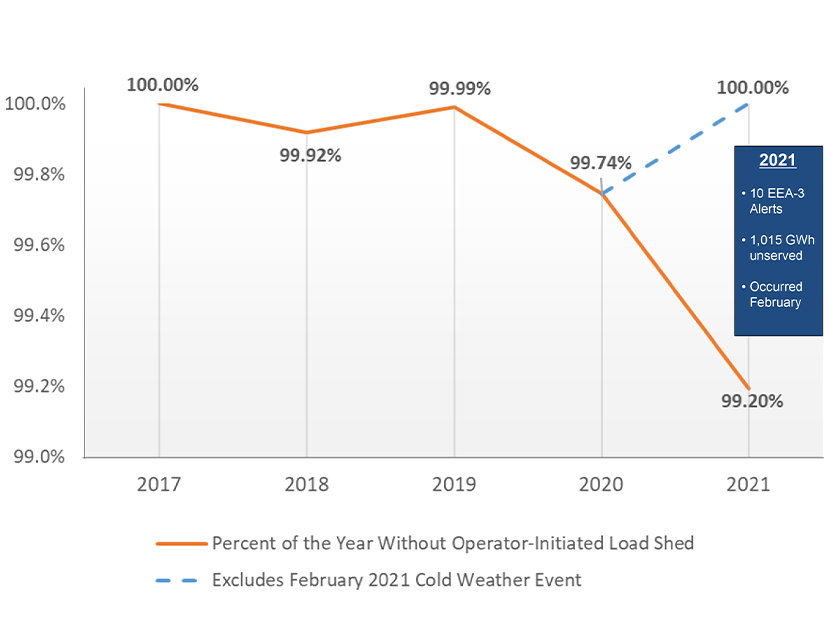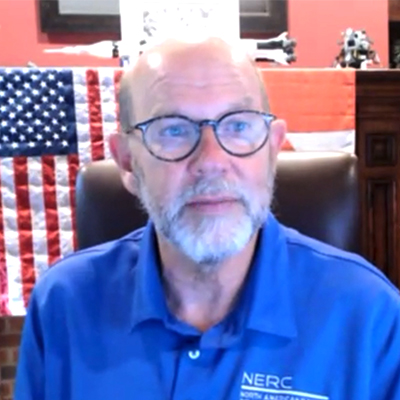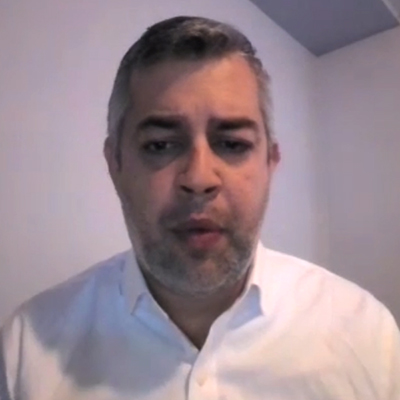
NERC’s Board of Trustees voted to accept the organization’s 2022 State of Reliability report on Thursday, clearing the way for its release later this month.
The ERO produces the report each year to provide an analysis of the overall health of the bulk electric system, identify performance trends and emerging reliability risks, and measure the success of mitigation activities. Unlike NERC’s seasonal and long-term reliability assessments, the State of Reliability report is formatted as a review of the bulk power system’s overall performance the prior year along with specific incidents that impacted reliability.
 Jim Robb, NERC | NERC
Jim Robb, NERC | NERCIn Thursday’s board meeting, NERC CEO Jim Robb said the growing threat from severe weather, coupled with the shift to renewable and low-carbon energy sources, made it more important than ever that “reliability has a seat at the table” during conversations about the future of the BPS. He added that the Summer Reliability Assessment, issued in May, has already “catalyzed a very productive conversation” with Energy Secretary Jennifer Granholm.
“The importance of these assessments is clearly growing, given both the changing climate conditions that the grid is having to operate under, and the transformation of the grid itself,” Robb said. “And I don’t think there’s any better proof of that than all the attention that our summer assessment … has gotten, both in terms of the popular press as well as the trade press.” (See West, Texas, Midwest at Risk of Summer Shortfalls, NERC Says.)
Thursday’s discussion did not include a look at the full report; that is scheduled to be released during a media event on July 20, a spokesperson for NERC told ERO Insider. However, NERC staff had provided a preview at the board’s May meeting with some of the report’s key findings, which John Moura, NERC’s director of reliability assessment and performance analysis, referenced in his presentation to the board.
 John Moura, NERC | NERC
John Moura, NERC | NERC“If there’s one question the State of Reliability really helps us answer, it’s ‘are we making a difference?’ … I think the answer is largely ‘yes, we are making a difference,’ and we do see incredible reliability improvements, specifically in how we keep the system stable,” Moura said. “On the other hand, when we look at our performance around resource adequacy and energy adequacy, we are seeing trends that really are leading to some concerns.”
One of the main challenges in 2021 was extreme weather, including the winter storms that knocked out power for thousands in Texas and the Midwest, Hurricane Ida’s impact on New Orleans and wildfires in the Western Interconnection. The winter storm in particular accounted for more than 23 GW of firm load shed, according to FERC and NERC’s joint report on the disaster, and was the sole reason for last year having the fewest hours without operator-initiated firm load shed since 2016. (See FERC, NERC Release Final Texas Storm Report.)
Trustee Roy Thilly said the report provided a strong reminder of the importance of planning for severe weather; he reminded listeners that “science tells us … we’re not dealing with a one-off situation.” Noting that “planning takes a long time to make changes,” he urged NERC to continue working to improve the grid’s preparation for the changing climate.
By contrast, Trustee Jim Piro suggested that while these issues must be recognized, the report also appears to tell an overall positive story. He said that although much work remains to build the grid of the future, NERC should be mindful of its successes so far so that it can properly build on them.
“There’s a lot of work that goes into making that happen, and sometimes we forget about how important that is and the work that’s been done. In fact, the system is pretty reliable, or very reliable, absent these severe events, and I think it’s important to note that for the industry,” Piro said.

